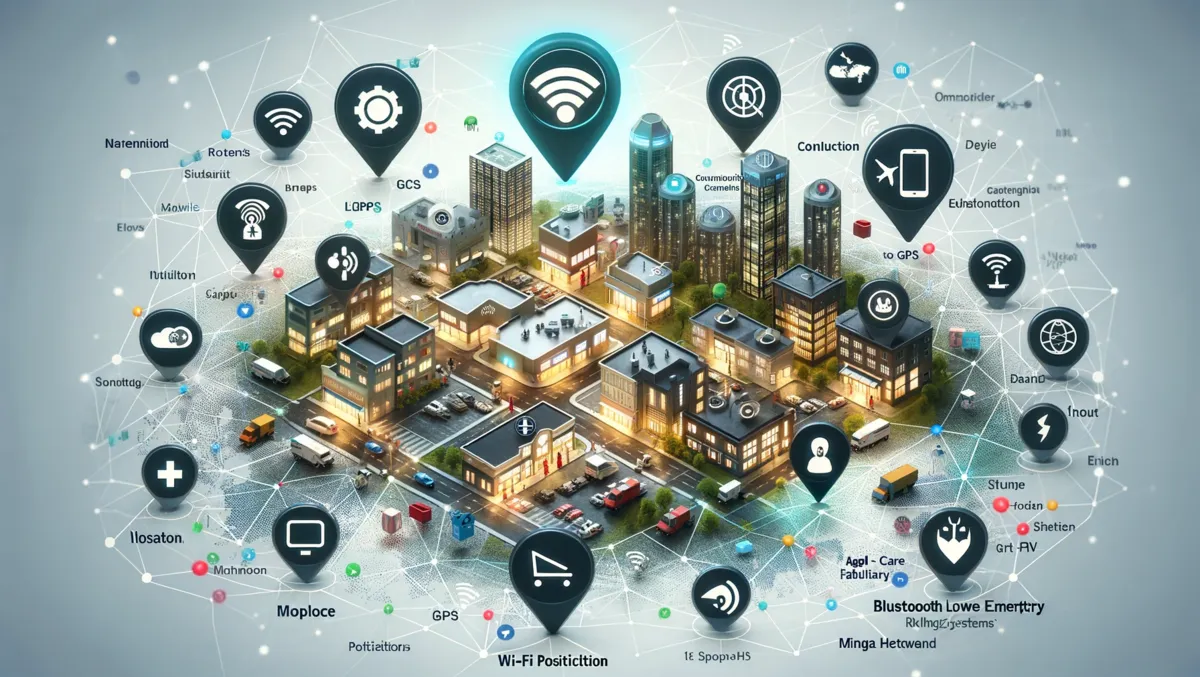
The rising impact of innovation on LBS & RTLS technologies
In your everyday life, you may not realise how technology is constantly innovating and evolving behind the scenes. Two such advancements, Location-Based Services (LBS) and Real-Time Location Systems (RTLS), are rapidly gaining traction in various sectors, from retail and healthcare to aged care and mining.
LBS involves the implementation of technologies that use locational data to provide services or information based on a user's current location. Systems responsible for providing LBS base their operations on various technologies including GPS, Wi-Fi, and cellular networks to determine a user's position and deliver contextual content or services.
"Real-Time Location Systems (RTLS), on the other hand, take LBS a step further by continuously tracking and monitoring the real-time location of assets, people, or objects. RTLS uses technologies like Wi-Fi Positioning, Bluetooth Low Energy (BLE), and UWB (Ultra-Wideband) to provide accurate and up-to-the-minute location data", explains Gareth Phillips, Location Based Services Specialist, Progility Technologies.
These technologies are transforming a range of industries in significant ways. In the retail sector, LBS and RTLS are being harnessed to improve the customer experience and streamline operations. Retailers use LBS to deliver personalised promotions and discounts to customers when in or near their stores. RTLS, meanwhile, optimises inventory management to minimise stock shortages and facilitate smooth click-and-collect services.
Hospitals also benefit from using RTLS, predominantly for asset management and patient care. Real-time tracking of medical equipment availability can ensure vital materials are ready when needed. Moreover, the movements of patients and staff can be overseen, leading to significant improvements in patient safety.
In aged care facilities, RTLS technology is crucial for the safety and well-being of residents. Immediate location data can speed up emergency responses, and monitoring residents' daily routines provides valuable insights into their health and behaviour.
Finally, the mining industry uses RTLS to track personnel and equipment locations, especially underground, crucial for safety and emergency protocols. At the same time, operational efficiency is boosted through asset utilisation optimisation.
Currently, the LBS and RTLS market is experiencing substantial growth. In 2021, it stood at USD 5.13 billion. Market size projections suggest this will significantly increase, with estimated expansion to USD 51.28 billion by 2030 due to various factors including growing adoption across diverse industries, developments in technology, and increasing demand for real-time data and location-based services.
"Location-Based Services (LBS) and Real-Time Location Systems (RTLS) have emerged as game-changers across various industries. These technologies offer numerous benefits, ranging from improved customer experiences to enhanced safety and operational efficiency. As the global market for LBS and RTLS continues to grow, businesses that embrace these innovations stand to gain a competitive edge. Progility Technologies can support you on your LBS and RTLS journey with proven technology solutions", Phillips concluded.
Progility Technologies, a leading information communications technology partner in Australia, understands that efficient and robust solutions can tip the scales between success and failure, profit and loss, and sometimes, life and death. Ongoing support is vital to maximising the performance of these systems. With offices in Melbourne, Sydney, Brisbane, and Perth, Progility Technologies has a national team of approximately 85 staff and a proud history of over 30 years deploying emerging communication technologies.

